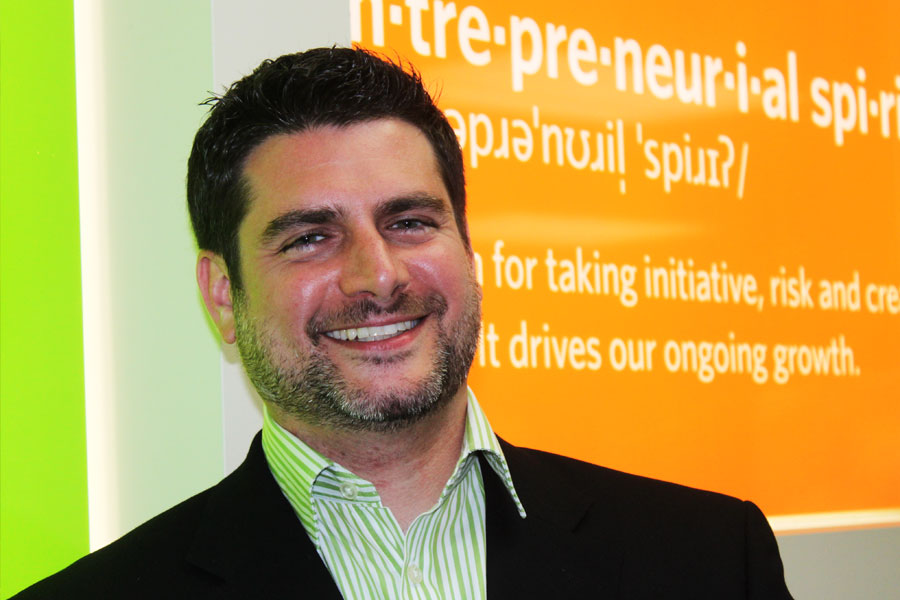 CEO and “linguapreneur” of Mango Languages, Teshuba launched the Farmington Hills, Mich.-based company in 2007 to create innovative language-learning products. Today the company generates more than $8 million in annual revenue and has more than 60 languages in its lineup.
CEO and “linguapreneur” of Mango Languages, Teshuba launched the Farmington Hills, Mich.-based company in 2007 to create innovative language-learning products. Today the company generates more than $8 million in annual revenue and has more than 60 languages in its lineup.
Jason Teshuba wants to put words in your mouth.
CEO and “linguapreneur” of Mango Languages, Teshuba launched the Farmington Hills, Mich.-based company in 2007 to create innovative language-learning products. Today the company generates more than $8 million in annual revenue and has more than 60 languages in its lineup — including Hawaiian, Haitian Creole, Punjabi and Koine Greek (the language the New Testament was written in). Customers range from large corporations to public libraries, where individuals can access Mango products for free.
In addition to its broad offerings, Mango distinguishes itself by focusing not just on vocabulary and grammar but also pronunciation and culture. The goal is to help customers quickly gain practical conversation skills and cultural insights.
Further raising the bar on innovation, Mango has developed a new product that builds language-learning tools into movies.
Known as Mango Premiere, this product includes a patent-pending captioning system that shows subtitles in the movie’s native language. “This is very hard to find,” Teshuba points out. “You could find a Chinese movie with English subtitles, but not Chinese. What’s more, our dynamic captioning system enables you to see two sets of subtitles simultaneously — English along with the language you’re trying to learn.”
